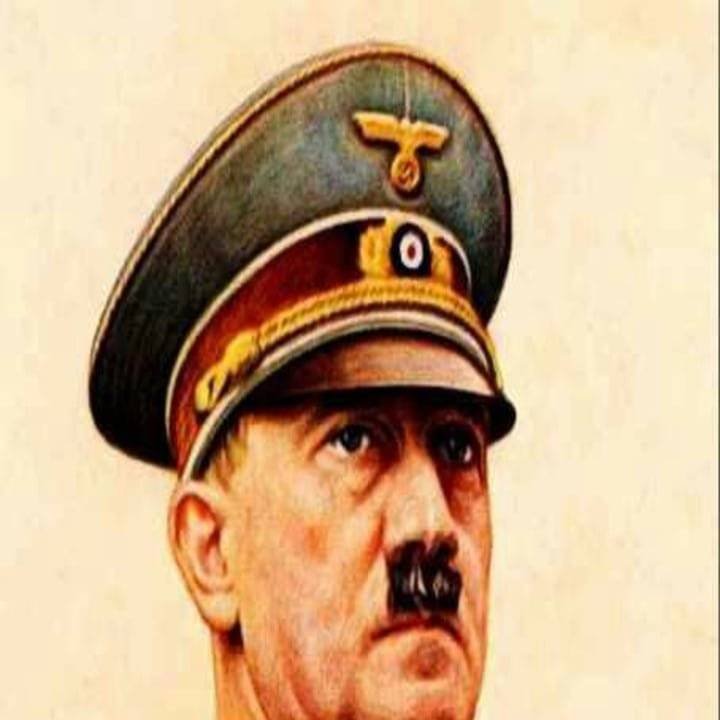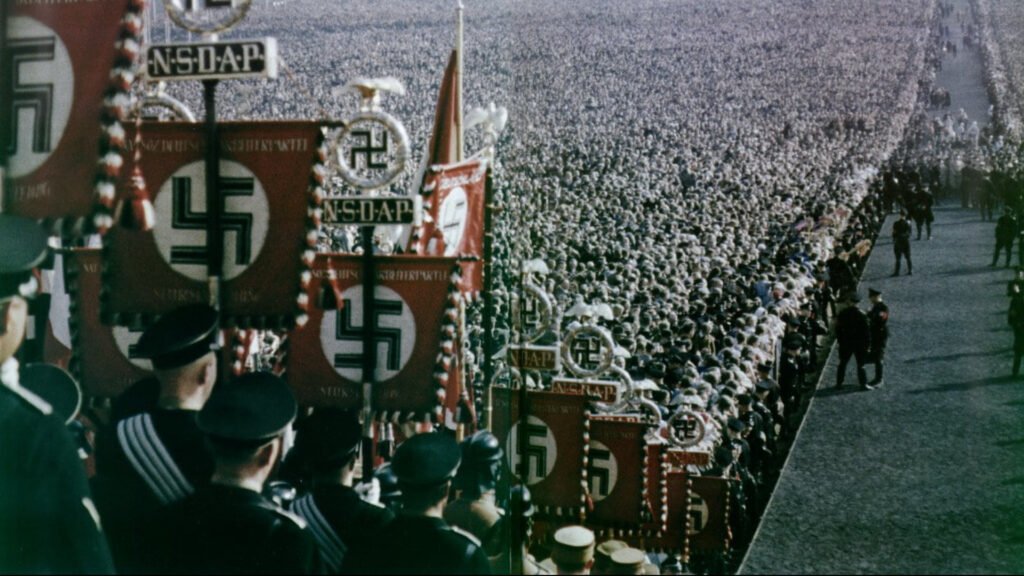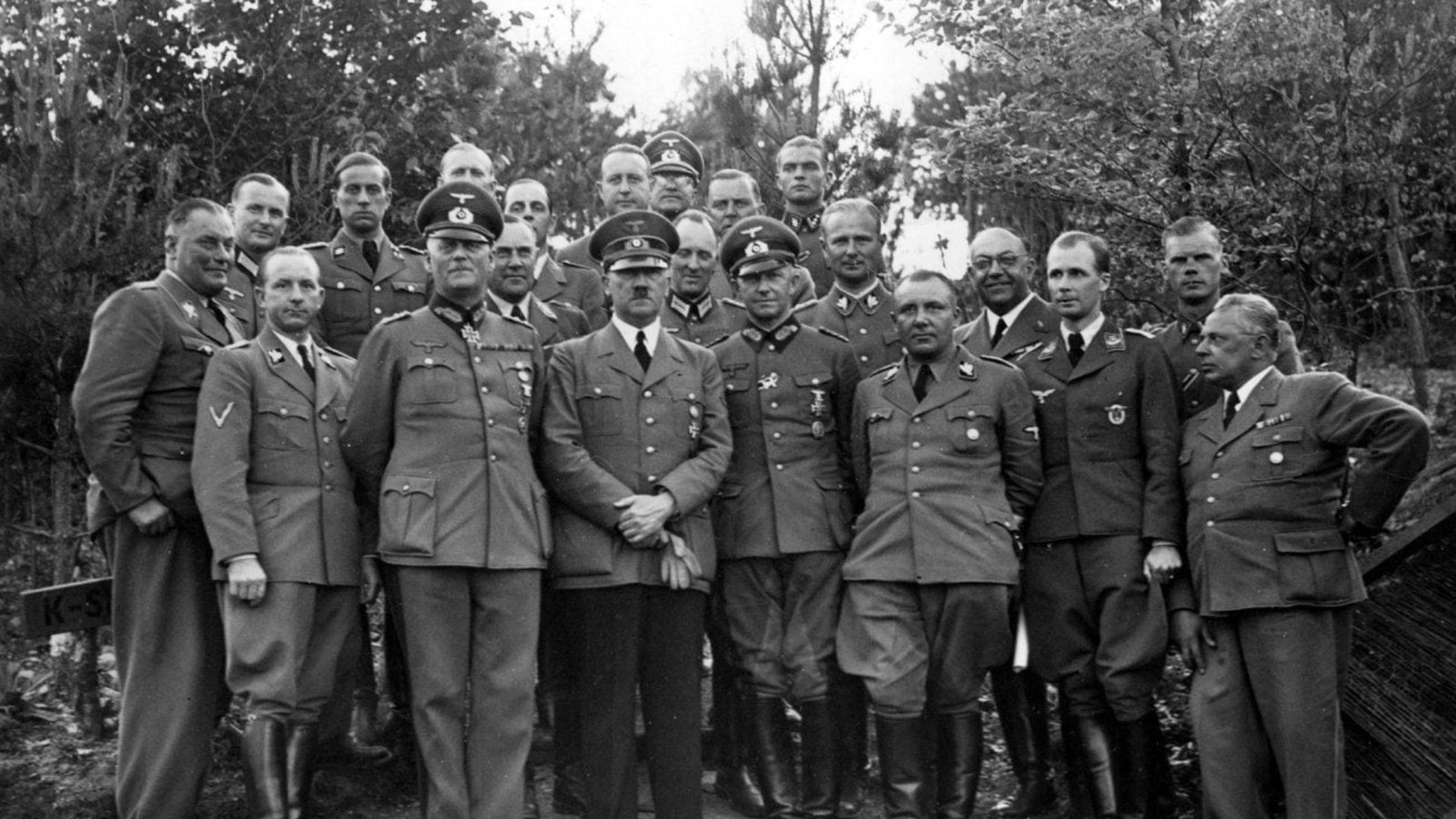Table of Contents
Introduction
“Some Facts About Hitler” Adolf Hitler, one of the most infamous figures in history, had a life filled with shocking and dark realities. From his rise to power as the leader of Nazi Germany to his ideologies that resulted in the devastation of World War II, understanding these facts is crucial to comprehend the impact he had on our world. In this article, we will delve into some lesser-known aspects of Hitler’s life, shedding light on the disturbing truths that shaped his legacy.
Key Takeaways:
- Hitler’s life was marked by shocking and dark realities that shaped his ideology and actions.
- His alleged son remains a controversial topic, with limited evidence supporting the claim.
- Exploring Hitler’s full name gives insight into the significance of his given names.
- The rumor that Hitler’s birth name was “Heil Schicklgruber” is debunked.
- Hitler’s World War I service played a pivotal role in his rise to power.
Adolf Hitler’s Son: Some Facts About Hitler

The controversy surrounding Adolf Hitler’s alleged son continues to intrigue historians and researchers alike. While there has been speculation and claims regarding Hitler’s descendants, the available evidence remains ambiguous and subject to ongoing debate. Some Facts About Hitler
One particular individual who has claimed to be Adolf Hitler’s son is Jean-Marie Loret. Born in 1918, Loret alleged that his biological father was the infamous dictator himself. However, despite his assertions, Loret’s claims have been met with skepticism and lack definitive proof. Some Facts About Hitler
Historians have examined various aspects of Loret’s life and compared them to Hitler’s known biographical details. While some similarities have been identified, such as physical resemblances and alleged connections to Hitler’s inner circle, it is crucial to approach these claims with caution. Some Facts About Hitler
It is important to remember that establishing a direct biological link to Adolf Hitler is a complex and challenging task, as the Nazi regime went to great lengths to keep Hitler’s personal life hidden from public scrutiny.
Further complicating matters is the fact that Hitler was notoriously secretive about his personal life, leaving very few records or evidence behind. This lack of documentation makes it difficult to definitively prove or disprove the claims made by individuals who assert a familial connection to Hitler.
While there may be controversy surrounding Adolf Hitler’s alleged son, it is crucial to separate fact from speculation and approach the subject with rigorous historical analysis. As researchers continue to explore this intriguing aspect of Hitler’s life, it is essential to uphold academic standards and rely on verifiable evidence before drawing any definitive conclusions. Some Facts About Hitler
| Evidence | Supporting Claims | Contrary Claims |
|---|---|---|
| Physical resemblances | Some individuals claiming to be Hitler’s descendants exhibit physical features similar to the dictator. | Resemblances could be coincidental and influenced by various external factors. |
| Family connections | Alleged links to Hitler’s inner circle and historical figures close to him | Connections could be fabricated or exaggerated for personal gain or attention. |
| Limited archival evidence | Hitler’s secretive personal life and the destruction of many records during World War II make it challenging to find concrete evidence supporting or refuting claims of a son. | The lack of documentation and ambiguity surrounding Hitler’s personal life leave room for doubt and speculation. |
Adolf Hitler’s Full Name: Understanding His Identity

In order to truly grasp the complexity of Adolf Hitler’s character, it is essential to explore his full name and the significance it holds in shaping his identity. Born on April 20, 1889, in Braunau am Inn, Austria-Hungary, Hitler was given the name Adolf Hitler.
Let’s break down his full name:
Adolf: The name Adolf is of Germanic origin, meaning “noble wolf.” It was a popular name during Hitler’s era and reflected the desire for individuals to bear strong and assertive names. This name choice likely resonated with Hitler’s ambitious and dominant personality. Some Facts About Hitler
Hitler: The surname Hitler has roots in Lower Austria and is derived from the German term “Hötler,” meaning “someone who lives near a hut.” This unremarkable surname, combined with his given name, would later become synonymous with brutality and terror. Some Facts About Hitler
By understanding the origins and meanings behind Adolf Hitler’s name, we gain insights into the societal context in which he lived. The significance of his given names reflects both the cultural influences and the aspirations of the time. The juxtaposition between the noble connotation of “Adolf” and the humble nature of “Hitler” encapsulates the duality of his identity.
This exploration of Adolf Hitler’s full name is just the tip of the iceberg when it comes to comprehending his complex and disturbing character. It serves as a starting point for unraveling the numerous factors that contributed to his rise to power and the atrocities committed under his leadership. Some Facts About Hitler
Heil Schicklgruber? The Origin of a Disturbing Rumor
Adolf Hitler, known for his role as the dictator of Nazi Germany, was shrouded in many rumors and controversies throughout his life. One infamous rumor that has persisted over the years is the claim that Hitler’s birth name was “Heil Schicklgruber.” This rumor, although widely circulated, is nothing more than a misinterpretation of historical facts. Some Facts About Hitler
The story behind the rumor begins with Hitler’s father, Alois Hitler, who was indeed born Alois Schicklgruber. However, Alois later changed his surname to “Hitler,” a decision made long before Adolf’s birth. The name change was a common occurrence at the time due to legal and cultural reasons. Some Facts About Hitler
“Claims that Adolf Hitler’s birth name was ‘Heil Schicklgruber’ are unfounded and based on a misunderstanding of historical records. Alois Hitler, Adolf’s father, changed his surname to ‘Hitler’ long before Adolf’s birth. Therefore, the rumor is nothing more than a fabrication.” Some Facts About Hitler
Despite the lack of historical evidence supporting the rumor, it has persisted and gained traction due to its sensational nature. Hitler’s association with the atrocities committed during World War II and the Holocaust has fueled public interest in any rumor that demeans and ridicules his legacy.
Debunking this rumor is important for multiple reasons. Firstly, it allows us to focus on the true atrocities committed by Hitler and the Nazi regime, rather than indulging in baseless rumors about his name. Secondly, it highlights the significance of accurate historical information. Spreading misconceptions and falsehoods can lead to misunderstanding and distort the lessons we learn from history. Some Facts About Hitler
As responsible researchers and historians, it is crucial to differentiate between fact and fiction, ensuring that the truth prevails over sensationalism. The rumor about Adolf Hitler’s birth name being “Heil Schicklgruber” is nothing more than a fabrication that should be disregarded in the pursuit of a deeper understanding of Hitler’s life and impact on history. Some Facts About Hitler
| Rumor about Adolf Hitler’s Name | Debunked Facts |
|---|---|
| “Heil Schicklgruber” was Hitler’s birth name | This claim is false; Adolf Hitler was never named “Heil Schicklgruber.” |
| Hitler changed his name to “Hitler” later in life | Adolf Hitler’s father, Alois, changed his surname to “Hitler” before Adolf’s birth. |
| Historical records support the rumor | There is no historical evidence to support the claim that Hitler’s birth name was “Heil Schicklgruber.” |
World War I Service: Hitler’s Path to Power

Adolf Hitler’s experience during World War I played a pivotal role in shaping his ideologies and paving the way for his rise to power. Serving as a soldier in the German army, Hitler’s time on the battlefield greatly influenced his political ambitions and worldview.
During World War I, Hitler served as a soldier in the Bavarian Army. He displayed bravery and dedication, earning several military honors, including the Iron Cross. However, it was also during this time that Hitler experienced the horrors of war, witnessing the destruction and loss of life on the frontlines.
“It is not truth that matters, but victory.”
This firsthand exposure to the brutality of war left a profound impact on Hitler, fueling his resentment and anger towards the Treaty of Versailles that was imposed on Germany after the war. Hitler believed that the treaty was a betrayal of the German people and sought to avenge their perceived injustices. Some Facts About Hitler
Furthermore, Hitler’s time in the military allowed him to hone his oratory skills and gain valuable leadership experience. He rose through the ranks and eventually became a company commander. This experience provided Hitler with the confidence and charisma that would later captivate the masses.
It was during his recovery from a mustard gas attack that Hitler became exposed to extremist ideologies and politics. This period of reflection and frustration with the state of post-war Germany laid the foundation for his radicalization and the formation of the National Socialist German Workers’ Party (NSDAP).
Hitler’s military service in World War I influenced his:
- Ideological beliefs
- Desire for revenge against perceived German injustices
- Development of oratory skills and leadership capabilities
- Radicalization and formation of the NSDAP
| Date | Event |
|---|---|
| 1914 | Volunteered during the outbreak of World War I |
| 1918 | Recipient of the Iron Cross for bravery |
| 1919 | Joined German Workers’ Party (DAP) |
| 1920 | Renamed the party as NSDAP |
Mein Kampf: The Banned Best Seller

One of the most notorious and controversial books in history, Mein Kampf has left an indelible mark on the world. Written by Adolf Hitler during his imprisonment in the 1920s, this autobiographical manifesto outlines his political ideologies, racist beliefs, and vision for a totalitarian state.
Mein Kampf translates to “My Struggle” in English, and it serves as a chilling testament to Hitler’s rise to power and the subsequent atrocities committed by the Nazi regime. The book not only details Hitler’s personal history and experiences but also expounds on his anti-Semitic beliefs and his aspiration for Aryan racial purity.
“For a long time yet we shall go on living in this world which has been spoiled by capitalism but this world will not survive Hitler.” – Adolf Hitler, Mein Kampf
Upon its initial publication in 1925, Mein Kampf gained popularity among Hitler’s followers and sympathizers. However, following the defeat of Nazi Germany in World War II, the book’s distribution and printing were strictly regulated. Some Facts About Hitler
The ban on Mein Kampf was put in place due to its highly inflammatory and racist content, which continues to be widely condemned today. The fear of perpetuating Nazi ideologies and the promotion of hatred led many countries, including Germany, to outlaw the book. This ban aimed to prevent the resurgence of fascism and to erase Hitler’s toxic legacy from society.
| Impact of Mein Kampf | Reasons for the Ban |
|---|---|
| Inspired Hitler’s followers: Mein Kampf played a significant role in shaping Hitler’s followers’ beliefs, fuelling their dedication and loyalty.Propaganda tool: The book served as a powerful tool for Nazi propaganda, helping to spread Hitler’s ideologies to a broader audience.Racist and anti-Semitic content: The ban aimed to prevent the dissemination of Hitler’s racist and anti-Semitic views, which had led to the Holocaust and countless atrocities. | Preventing the resurgence of fascism: Outlawing Mein Kampf aimed to eliminate the potential for the revival of Nazi ideologies and the rise of similar hate movements.Safeguarding against hate speech: The ban aimed to protect society from the promotion of hatred and discrimination, reinforcing the importance of equality and human rights. |
While the ban on Mein Kampf remains in place in many countries, it has sparked debates on the limits of free speech and the balance between historical preservation and the prevention of hate speech.
It is important to remember infamous works like Mein Kampf as a stark reminder of the consequences of unchecked ideologies and the importance of actively combating hatred and discrimination in all its forms.
From Fire to Führer: Hitler’s Journey in Politics
Adolf Hitler’s political career was a transformational journey that took him from the depths of obscurity as a failed artist to the heights of power as the charismatic leader of Nazi Germany. Throughout his journey, Hitler encountered key milestones that shaped his ideologies and propelled him towards the position of Führer. Some Facts About Hitler
One of the significant turning points in Hitler’s political career was the founding of the National Socialist German Workers’ Party (NSDAP), commonly known as the Nazi Party. In 1920, Hitler became the leader of the party and began molding it into a revolutionary political force. By capitalizing on the discontentment and economic turmoil prevalent in post-World War I Germany, Hitler utilized propaganda, mass rallies, and an extremist platform to gain support and followers.
Another milestone in Hitler’s journey came in 1923 with the failed Beer Hall Putsch. Seeking to overthrow the Bavarian government and establish a national revolution, Hitler and his supporters staged a coup in Munich. However, the uprising was swiftly suppressed, and Hitler was arrested and sentenced to prison. During his incarceration, Hitler wrote his infamous book, “Mein Kampf,” which outlined his political ideologies and provided a blueprint for the future Nazi regime.
Following his release from prison, Hitler shifted his focus to legal means of attaining political power. He transformed the Nazi Party into a legitimate political force, participating in elections and gradually gaining seats in the German parliament, the Reichstag. Through his powerful oratory skills, passionate speeches, and charismatic persona, Hitler captivated the masses and grew his influence.
By the early 1930s, Hitler’s relentless political campaigning and the impact of the Great Depression had propelled the Nazi Party to become the largest party in the German parliament. In 1933, amid political maneuvering and compromise, Hitler was appointed as Chancellor of Germany. This marked a crucial step in his ascent to power.
Table: Key Milestones in Hitler’s Political Journey
| Year | Milestone |
|---|---|
| 1920 | Hitler becomes the leader of the Nazi Party |
| 1923 | Failed Beer Hall Putsch |
| 1925 | Publication of “Mein Kampf” |
| 1930 | Nazi Party becomes the largest party in the Reichstag |
| 1933 | Hitler appointed Chancellor of Germany |
From this position of power, Hitler rapidly consolidated control, dismantling democratic institutions and establishing a totalitarian regime. He wielded absolute authority and solidified his position as the Führer, allowing him to implement his radical policies and pursue his vision of a racially superior Nazi state.
Hitler’s journey from aspiring artist to the leader of Nazi Germany illustrates the transformative power of political ambition and the dangerous consequences that can arise from unchecked extremism. By examining the key milestones in Hitler’s political career, we gain insight into the factors that contributed to his rise to power and the subsequent devastation he unleashed on the world.
The Art Critic: Hitler’s Failed Pursuit

Adolf Hitler’s passion for art was well-documented during his early years. His failed pursuit of becoming an artist would later have a significant impact on his actions and ideologies. Hitler’s rejection from art school in Vienna, coupled with his experiences as a struggling artist in his youth, played a crucial role in shaping his worldview and fueling his desire for recognition and power.
As an aspiring artist, Hitler faced numerous rejections and setbacks. His style, largely influenced by academic and traditional approaches, failed to capture the attention of the influential art establishment of the time. Despite his dedication and effort, Hitler was unable to attain the recognition he longed for.
It is believed that Hitler turned to politics and eventually rose to power as a way to compensate for his perceived artistic failure. His bitter disappointment as an artist fueled a sense of resentment and a belief in his own superiority. This, in turn, shaped his extreme nationalist and racist ideologies, leading to the creation of the Nazi party and the atrocities committed under his leadership.
“Had Adolf Hitler been admitted to the Vienna Academy of Fine Arts and pursued a successful career as an artist, the history of the world might have been very different.” – Art Historian
To understand Hitler’s role as an art critic is to delve into the complex psyche of an individual whose artistic aspirations were marred by rejection and bitterness. Hitler’s failed pursuit as an artist serves as a cautionary tale, demonstrating the dangerous consequences that can arise from unfulfilled ambitions and a distorted sense of entitlement.
A Comparison of Hitler’s Failed Artistic Career and His Political Ascendancy
| Failed Artistic Career | Political Ascendancy |
|---|---|
| Rejection from art school | Unsuccessful coup attempt: Beer Hall Putsch |
| Struggle as a struggling artist | Rise to power through propaganda and rhetoric |
| Desire for recognition and validation | Thirst for power and dominance |
| Artistic influences from traditional styles | Nationalistic and racist ideologies |
| Rejection-driven bitterness | Resentment and desire for revenge |
The table above highlights the striking parallels between Hitler’s failed artistic career and his political ascendancy. It underscores the profound impact that personal setbacks and unfulfilled dreams can have, especially when they become catalysts for radical ideologies and destructive actions.
Teetotaler, Vegetarian, and Drug User? Unveiling Hitler’s Habits
Adolf Hitler’s personal habits have long been a topic of fascination and speculation. Known for his extreme ideologies and actions, it is intriguing to explore the habits he adopted in his private life. From his claims of abstinence from alcohol to his vegetarian diet, Hitler’s choices shed light on his character and have sparked debates among historians and researchers.
Teetotaler: Hitler’s Abstinence from Alcohol
Hitler was often portrayed as a teetotaler, someone who abstains from consuming alcoholic beverages. According to several biographies, including Ian Kershaw’s Hitler: 1889-1936 Hubris, Hitler displayed a strong aversion to alcohol. This is said to be linked to his father’s heavy drinking habits and the negative impact it had on his family.
It is reported that Hitler’s temper was unpredictable and aggressive, and he believed that maintaining complete sobriety would allow him to stay in control. Whether this abstinence was entirely true or merely a part of his carefully constructed image is a topic of debate. However, multiple accounts from those who interacted with Hitler have documented his refusal to consume alcohol.
Vegetarian: Hitler’s Meat-Free Diet
Another aspect of Hitler’s personal habits was his adherence to a vegetarian diet. It is believed that he adopted this dietary lifestyle in the early 1930s, stating that killing animals for food contradicted his personal philosophy and beliefs. Hitler’s alleged vegetarianism has been extensively documented, both by those close to him and historical records.
However, it is important to note that there are differing accounts regarding the extent of Hitler’s vegetarianism. Some sources claim that he occasionally consumed meat, particularly when hosting guests or attending official events. Nevertheless, his commitment to a primarily vegetarian diet remains a significant aspect of his personal habits.
Controversial Speculation: Hitler as a Drug User
A controversial and often disputed topic concerning Hitler’s habits revolves around the possibility of him being a drug user. Some historians suggest that Hitler relied on various substances, including opioids and amphetamines, to enhance his performance and combat health issues.
While concrete evidence supporting Hitler’s drug use is limited, reports from Hitler’s personal physician, Dr. Theodor Morell, indicate that he administered various medications and treatments to the dictator. These substances supposedly provided Hitler with a boost of energy and relief from ailments, allowing him to maintain a demanding schedule.
It is essential to approach these claims with caution, as the historical accuracy of Morell’s accounts has been questioned. Nevertheless, the topic of Hitler’s alleged drug use generates ongoing debates among experts in an attempt to understand the factors that influenced his actions and decision-making process.
| Habit | Description |
|---|---|
| Teetotaler | Hitler claimed abstinence from alcoholic beverages. |
| Vegetarian | Adopted a primarily meat-free diet based on personal beliefs. |
| Drug User | Controversial speculation surrounding Hitler’s use of drugs, although concrete evidence remains limited. |
Billionaire and Nobel Prize Scandal: Examining Hitler’s Wealth and Controversies

Adolf Hitler, infamous for his role as the dictator of Nazi Germany, is often associated with his atrocities and genocidal acts. However, lesser-known aspects of Hitler’s life include his alleged wealth and involvement in a potential Nobel Prize scandal. This section delves into the controversy surrounding Hitler’s financial success and examines the speculations surrounding his connection to the prestigious Nobel Prize.
While Hitler is known to have lived a relatively modest lifestyle, there have been claims suggesting that he accumulated a significant amount of wealth during his time in power. These allegations, coupled with Hitler’s authoritative control over Nazi Germany’s resources, raise questions about the extent of his financial assets and the sources of his wealth.
Furthermore, an intriguing aspect of Hitler’s wealth revolves around the possibility of a Nobel Prize scandal. Speculations suggest that Hitler may have been involved in attempts to secure a Nobel Prize, exploiting the prestige of the award for personal gain or spreading Nazi propaganda internationally. Although there is no concrete evidence to support these claims, they continue to fuel discussions and intrigue researchers.
Hitler’s alleged wealth and potential involvement in a Nobel Prize scandal offer a glimpse into the complexities of his character and the reach of his influence beyond his genocidal policies. Unveiling the truth behind these controversies can provide a broader understanding of Hitler’s motivations and aspirations.
Death and Conspiracy Theories: Unraveling Hitler’s Demise
Adolf Hitler’s death and the circumstances surrounding it have long been the subject of speculation and conspiracy theories. In this section, we delve into the facts surrounding Hitler’s demise and dispel some of the common misconceptions that have arisen over the years.
On April 30, 1945, Hitler took his own life in his bunker in Berlin. He had been facing defeat as the Allies closed in on Germany during World War II. According to historical accounts, Hitler shot himself in the head while also consuming cyanide.
“I have decided to remain in Berlin and there to choose death voluntarily when I determine that the position of the Fuehrer and Chancellor itself can no longer be held.” – Adolf Hitler
Following Hitler’s death, his body was reportedly taken outside and burned by his aides. The Soviet army, who had occupied Berlin, discovered the remains and attempted to confirm Hitler’s death through dental records and forensic examination.
Despite the evidence and the confirmation from eyewitnesses, conspiracy theories have emerged, suggesting that Hitler did not die and instead escaped. Some theories propose that Hitler fled to South America or Antarctica, while others claim he lived in secret under a new identity. However, these theories lack credible evidence and are widely considered to be baseless speculation.
It is essential to rely on the verified historical accounts and evidence surrounding Hitler’s death to understand the truth behind this significant event in history. The conspiracy theories that circulate only serve to distract from the broader examination of Hitler’s actions and the impact of his ideology.
The Fate of Hitler’s Body
The fate of Adolf Hitler’s body has also been a subject of speculation and conspiracy. According to official records, Hitler’s body was discovered by the Soviets and buried initially in a shallow grave outside the bunker. However, it was later exhumed, further examined, and ultimately disposed of by the Soviet authorities.
Given the chaos and circumstances of the time, Hitler’s body did not receive a traditional burial. Instead, it was burned along with the remains of Eva Braun, Hitler’s wife, and their dog. The remains were then buried in an unknown location.
| Common Conspiracy Theories | |
|---|---|
| Hitler escaping to South America | Speculation without concrete evidence |
| Hitler living in secret under a new identity | Baseless conjecture with no credible proof |
| Hitler fleeing to Antarctica | Lacks historical and logistical plausibility |
The disposal of Hitler’s body and the lack of a traditional burial have contributed to the fascination and speculation surrounding his death. However, it is crucial to rely on factual evidence and credible sources when examining historical events.
By investigating the circumstances of Hitler’s death and debunking the conspiracy theories that have emerged, we can gain a more accurate understanding of this pivotal moment in history and its significance in shaping the post-World War II world.
Conclusion
In conclusion, delving into the shocking dark realities of Adolf Hitler’s life has revealed the true depth of his depravity and the immense impact he had on history. By examining various aspects of his life such as his alleged son, his full name, and the disturbing rumors surrounding it, as well as his World War I service and political journey, we gain valuable insights into the man behind one of the darkest chapters in human history.
Exploring Hitler’s failed pursuit of becoming an artist and his personal habits, including claims of teetotalism, vegetarianism, and rumored drug use, adds further complexities to his character. The examination of his wealth and controversies surrounding it, along with the conspiracy theories surrounding his death, furthers our understanding of the multi-faceted nature of his legacy.
It is of paramount importance to understand these shocking dark realities in order to ensure they are never repeated. By uncovering the truth about Hitler, we can learn valuable lessons about the dangers of extreme ideologies, the consequences of unchecked power, and the importance of promoting tolerance and compassion in our society.

